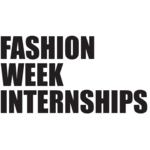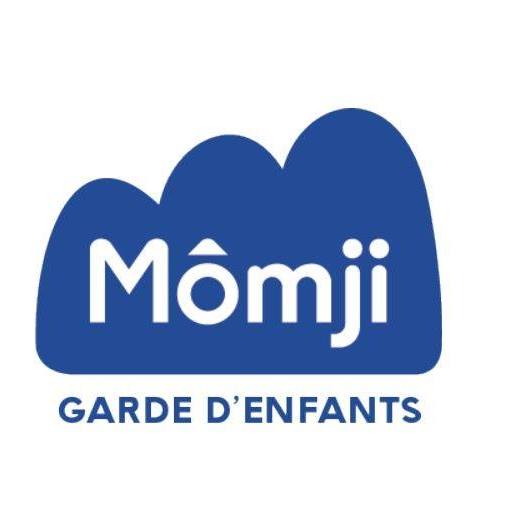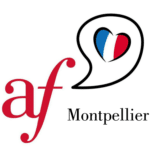
5 Great Gap Year Programs in France
Gap year programs are a popular way to go abroad and work and/or study, continuing to further your French skills.
Check out the list below to find out about five good options for gap year programs in France.
Contents
Download: This blog post is available as a convenient and portable PDF that you can take anywhere. Click here to get a copy. (Download)
5 Top Gap Year Programs in Franc
1. Gap Year Professional Internships in France
Fashion Week Internships
How it works:
Paris is home to fashion industries such as Louis Vuitton, Chanel and Dior.
Fashion Week Internships (FWI) is an agency that matches you with fashion programs around Paris.
Although your mind might immediately jump to design when you think of fashion jobs, there are multiple areas to choose from. Consider working as a buyer for a retail department, organizing fashion-related events or learning how to manage models. And those are just a few of the numerous options.
Internships can be as brief as eight weeks. If you truly want to dedicate yourself to a full gap year, though, you can work for up to 48 weeks.
Costs:
You’ll pay around $2,150 for the 48-week program. Keep in mind, this price doesn’t cover travel or accommodations.
Speaking of accommodation costs, if you need help finding a place to live or negotiating with your landlord in French, FWI employees will help you with these intimidating tasks.
Education First
How it works:
Education First (EF) offers a program specifically designed for students taking a gap year between high school and college. You’ll have the benefit of spending time around people your own age who are of a similar mindset.
EF’s gap year lasts for 26 weeks, running from September through April.
Here’s the basic outline of EF’s gap year program:
- Orientation in London
- Welcome tour in several major European cities (including Paris!)
- Six weeks of language study in your chosen city
- Six weeks of volunteering in a different chosen city
- Six weeks of winter break, when you can do whatever you want
- Three-week-long Australian tour
- Six-week-long internship in another chosen city
- Three-week-long leadership training in London
You’ll spend a lot of time discussing your internship options with your EF recruiter and at orientation in September. You choose three career fields you’re interested in, and you interview for positions. EF notifies you of your placement before you leave for winter vacation.
The available fields are business, entrepreneurship, marketing and social media, travel and tourism, education and non-profit.
The only French city EF promotes for the gap year is Paris. If you want to spend as much time as possible in France, you can conduct your language study and professional internship here.
You might panic when you notice that spending your six weeks of volunteer service in France isn’t an option! Isn’t the whole point of this search to immerse yourself in French culture?
Don’t worry. EF’s gap year program is customizable. The staff wants to help you chase your passion and succeed.
A representative told me that if you want to stay in France, you can opt out of the six-week-long volunteer service and conduct another six weeks of French language study instead. No problem!
And you have a six-week winter break. Consider touring other French cities during this time!
Or you might choose to volunteer somewhere other than France. EF’s program is ideal for people who want to explore the entire world.
Costs:
The EF gap year program starts at $32,700.
Keep in mind, this price covers tuition, travel expenses and room and board. Your transportation to and around Europe and Australia is included in this price. Granted, if you decide to travel during your six-week winter vacation, you’ll spend extra money.
This price varies depending on where you go.
2. Au Pair Jobs for Gap Year Travelers
Momji
How it works:
Momji is an option for au pairs who want a more flexible environment.
Most nannies work between five and 40 hours per week, so if you want more time to explore France, this may be an ideal option. You earn between €11.50 and 13 ($13 and $15) per hour, depending on experience.
When you work for Momji, your sole responsibility is to teach children English in their home.
You have a wider range of options for where to live compared to other programs on this list. Yes, you may like the idea of living in one of the more well-known cities, such as Paris, Lyon, Nice or Marseille. But you can also stay in Bordeaux, Lille, Toulouse, Nantes, Strasbourg, Montpellier or Rennes.
While you do need experience in childcare to work for Momji, you don’t need a strict 200 hours as you would with InterExchange.
Keep in mind, you must either be an EU citizen or be eligible for a French work visa to be an employee of Momji.
Costs:
For this option, you can work for 20 hours per week, at a minimum of €10 per hour.
When you work for InterExchange, you receive complimentary housing with the family you au pair for. There’s no need to factor accommodations into your budget.
Working for Momji, you visit families’ homes throughout the week, so you can’t stay with one family. The agency has several housing options, and employees are happy to help you find a place. But if you don’t already know someone you can stay with in France, you should factor housing into your budget.
3. Gap Year French Learning Programs
Alliance Française
How it works:
Alliance Française (French Alliance) is one of the most well-respected language schools across the globe. The school has numerous programs available in France, so it’s no surprise that they have one specifically aimed toward gap year travelers.
The gap year program takes place in Montpellier, a vibrant city in the south of France that’s a hub for young professionals.
You must enroll for at least three months and you can stay for up to a year. You take 20 language classes per week, each lesson running for 45 minutes. Classes are on a Monday-through-Friday schedule, so you have weekends free to take trips or explore Montpellier.
The company sets you up with a host family so you can interact with them and learn French at home, too.
Costs:
A full year in this school costs €13,832 (roughly $16,318) when you stay with a host family. This doesn’t include the fee for the Accommodation Search Service that matches you with a family. If you want to stay in a private studio apartment, you’ll pay €16,640 (roughly $19,000).
Everyone also pays €85 (roughly $100) in fees.
You’ll also pay extra if you want to take advantage of the International Student Service, which helps you set up a bank account, buy a French phone, etc.
Council on International Educational Exchange
How it works:
The Council on International Education Exchange (CIEE) has a gap year program that lasts 38 weeks, from September to May.
You live with a host family in Paris and take 15 hours of French classes per week. CIEE encourages students to spend a lot of time with their host families to learn the language and experience French culture.
Keep in mind, this program is specifically aimed toward young people who’ve recently graduated from high school. You must be at least 18 years old and be in good academic standing.
Costs:
The 38-week program costs $25,750. If you only want to go to Paris for one semester, you’ll pay $14,500 for 15 weeks.
The program fee looks steep, but it covers a lot of expenses: the cost of housing, international medical insurance and company-led excursions, among other things.
You do have to pay for your own flight to Paris.
FluentU takes authentic videos—like music videos, movie trailers, news and inspiring talks—and turns them into personalized language learning lessons.
You can try FluentU for free for 2 weeks. Check out the website or download the iOS app or Android app.
P.S. Click here to take advantage of our current sale! (Expires at the end of this month.)
What Does a Gap Year in France Involve?
A “gap year” is pretty much what it sounds like. You take a year off from your routine to do something different.
Many people take a gap year to travel, experience new things and identify new goals in life.
Why would I take a gap year?
There are many valuable benefits to taking a gap year.
On a gap year, you can take time to find yourself. While this rationale applies to anyone at any age, it’s especially relevant for students finishing high school.
It may give you an opportunity to figure out who you are as an adult, what your career goals are and what exactly you want to study.
Taking a gap year can also provide you with work experience, relationships and perspective that may make you more well-rounded.
What do you do during a gap year?
There are several options for how to spend this year. This post addresses three popular options that are available in France.
First, you could apply for a professional internship. Second, you could become an au pair (nanny). Third, you could dedicate your time specifically to learning the French language.
Who can take a gap year in France?
Anyone can take a gap year in France. Maybe you’re an adult who wants to take time off before transitioning to a new career. Or you just graduated from college and don’t want to jump into the dreaded workforce yet.
Traditionally, those who participate in a gap year are recent high school graduates who want to take a year off before starting college.
Most English speakers who do a gap year in a non-English-speaking country are interested in immersive language learning. Whether you already know some French or don’t have a word, your language skills will soar by being surrounded by native speakers day in, day out. It’s one of the things that makes a gap year in France so valuable.
You can prepare yourself for this experience with a few simple activities, which you can do before or during your time abroad. Consuming French media is one easy method: You can listen to French music, check out French books and newspapers, or watch French films.
Immersion can be intensive and challenging, but it’s incredibly rewarding and unmatched as a method of improving your French skills as a whole.
Now you have more information to help you decide whether a gap year in France would be something for you!
Download: This blog post is available as a convenient and portable PDF that you can take anywhere. Click here to get a copy. (Download)
And one more thing...
If you like learning French on your own time and from the comfort of your smart device, then I'd be remiss to not tell you about FluentU.
FluentU has a wide variety of great content, like interviews, documentary excerpts and web series, as you can see here:

FluentU brings native French videos with reach. With interactive captions, you can tap on any word to see an image, definition and useful examples.

For example, if you tap on the word "crois," you'll see this:

Practice and reinforce all the vocabulary you've learned in a given video with learn mode. Swipe left or right to see more examples for the word you’re learning, and play the mini-games found in our dynamic flashcards, like "fill in the blank."

All throughout, FluentU tracks the vocabulary that you’re learning and uses this information to give you a totally personalized experience. It gives you extra practice with difficult words—and reminds you when it’s time to review what you’ve learned.
Start using the FluentU website on your computer or tablet or, better yet, download the FluentU app from the iTunes or Google Play store. Click here to take advantage of our current sale! (Expires at the end of this month.)








